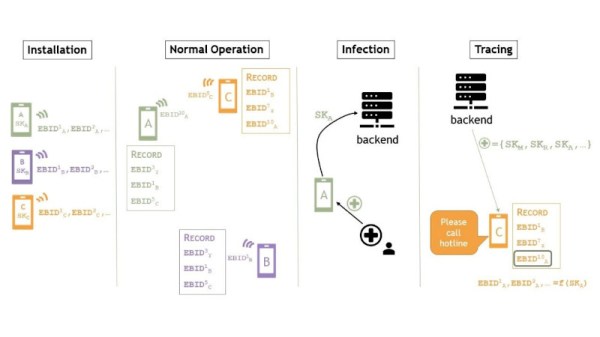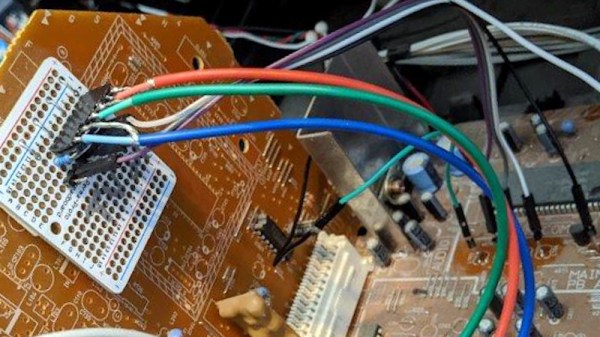As we continue through the pandemic, whether we are on lockdown or still at work, there is a chance for all of us that we could still pick up the virus from a stray contact. Mapping these infections and tracing those in proximity to patients can present a major problem to infection control authorities, and there have been a variety of proposals for smartphone apps designed to track users’ contacts via the Bluetooth identities their phones encounter. This is a particular concern to privacy advocates, because there is a chance that some governments could use this as an excuse to bring in intrusive personal surveillance by this means. A group of academics from institutions across Europe have come together with a proposal for a decentralised proximity tracing system that allows identification of infection risk without compromising the privacy of those using it.
Where a privacy-intrusive system might use a back-end database tracking all users and recording their locations and interactions, this one uses anonymised tokens stored at the local level rather than at the central server. When a user is infected this is entered at app level rather than at server level, and the centralised part of the system merely distributes the anonymised tokens to the clients. The computation of whether contact has been made with an infected person is thus made on the client, meaning that the operator has no opportunity to collect surveillance data. After the pandemic has passed the system will evaporate as people stop using it, rather than remaining in place harvesting details from installed apps. They are certainly not the first academics to wrestle with this thorny issue, but they seem to have ventured further into the mechanics of it all.
As with all new systems, it’s probably good to subject it to significant scrutiny before deploying it live. Have a read. What do you think?
We are all watching our authorities as they race to respond to the pandemic in an effective manner, and we hope that should they opt for an app that it does an effective job and they resist the temptation to make it too intrusive. Our best course of action meanwhile as the general public is to fully observe all advised public health measures such as self-isolation or the wearing of appropriate personal protective equipment.













